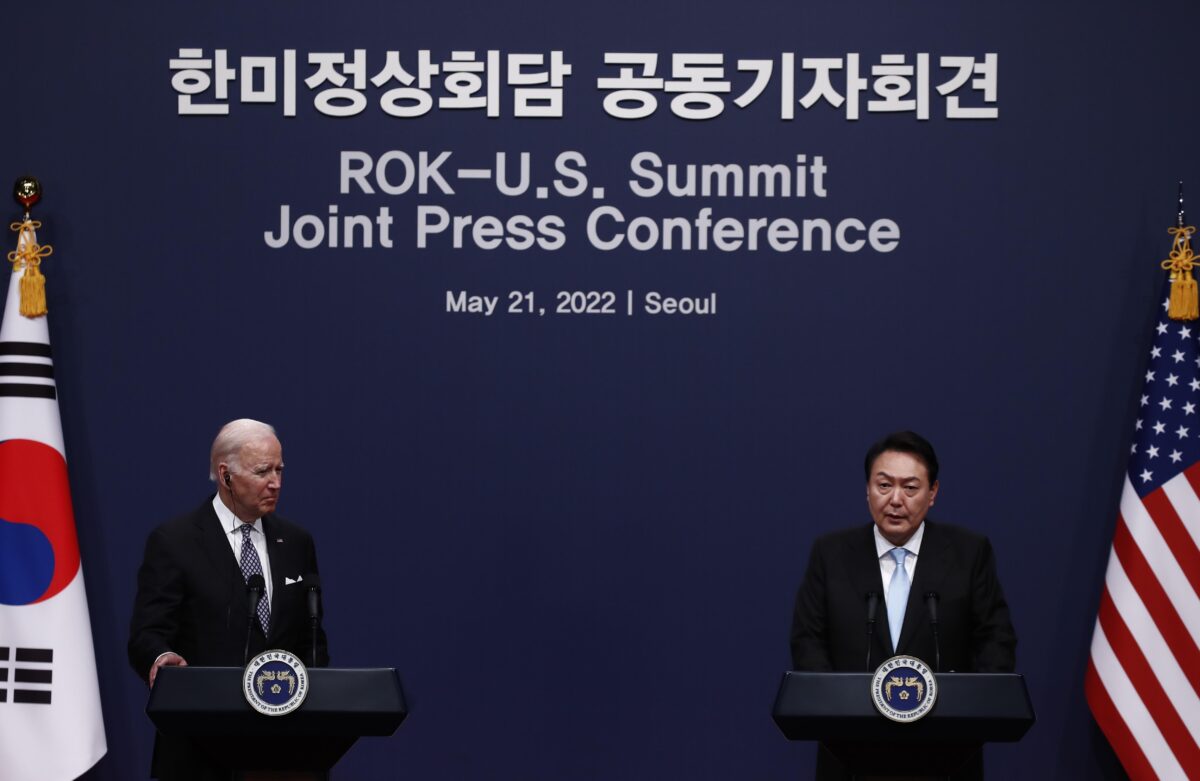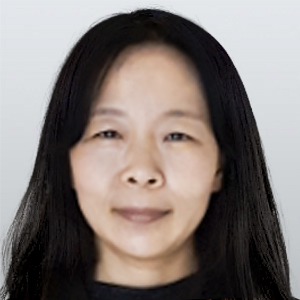Li Zhanshu, the third most important figure in the Chinese Communist Party (CCP) and a member of the Politburo Standing Committee, is to visit South Korea in mid-September.
According to experts, China and the United States are competing to win over South Korea as it is an important part of the global semiconductor supply chain.
Li is the third most important person within the CCP after the top leader Xi Jinping and State Council Premier Li Keqiang. He is also a close ally of Xi.
South Korean media Yonhap News Agency reported on Sept. 1 that Li will visit South Korea for three days, starting from Sept. 15. He will meet with Kim Jin-pyo, the speaker of the South Korean Parliament, and may pay a courtesy visit to President Yoon Suk-yeol. It isn’t known whether they will discuss a summit between the two countries during Li’s visit.
An official from South Korea’s Ministry of Foreign Affairs told Yonhap that the two top leaders’ state visits are usually coordinated by the foreign ministry, but the two sides will take the opportunity of Li’s visit to form a consensus on the necessity of high-level exchanges.
Chip Industry at the Core of Competition
China expert Ji Da told The Epoch Times on Sept. 2 that South Korea has become a crucial place for China and the United States to win over, as South Korea’s chip industry is quite advanced. Previously, U.S. President Joe Biden visited South Korea, followed by House Speaker Nancy Pelosi (D-Calif.). And now Xi Jinping is also planning to visit South Korea, apparently over competition with the United States, Ji said.
In an interview with The Epoch Times, Lee Ji-yong, a professor at the Department of International Studies of Korea’s Chi-Ming University, also said that Li’s visit to South Korea is intended to strengthen bilateral relations on the occasion of the 30th anniversary of the establishment of diplomatic relations between the two countries, and will center on issues of concern, including semiconductors. He speculated that if Xi Jinping is reelected, he may visit South Korea and make a series of requests on the issue of semiconductors, but it is almost impossible that South Korea will accommodate Beijing’s demands.
 Semiconductor testing equipment are at a clean room of National Nanofab Center in Daejeon, South Korea, on Sept. 3, 2020. (Kim Hong-Ji/Reuters)
Semiconductor testing equipment are at a clean room of National Nanofab Center in Daejeon, South Korea, on Sept. 3, 2020. (Kim Hong-Ji/Reuters)In a choice between the United States and China, South Korea’s semiconductor industry would certainly go for the United States, Lee said. In fact, it is not a matter of choice, it is a matter of survival, Lee said. “South Korea’s semiconductor industry cannot survive if it chooses to break away from the United States and other Western countries.”
He also pointed out that as President Yoon Suk-yeol did not meet with Pelosi in person during her visit, Washington might be unhappy that Yoon will personally receive Li in September, as Li’s official rank is on par with that of Pelosi.
Nonetheless, Lee emphasized that he believes the current South Korean administration’s stance of attaching great importance to the U.S.–Korea alliance will not change.
“No matter how the CCP exerts pressure, the South Korean government will adhere to its security and economic policies, to protect our national interests. That will not change even if Yoon meets with Li [in September] and Xi some time later,” he said.
Biden’s Samsung Tour
During Biden’s first Asia trip as president in May, he visited a Samsung Electronics plant immediately after his arrival in Korea.
In his 10-min speech after the tour, Biden advocated bolstering cooperation between “value sharing” countries on technology and other issues.
“Our two nations work together to make the best, most advanced technology in the world, and this factory is proof of that,” he said. “That gives both Korea and the United States a competitive edge in the global economy if we can keep our supply chains resilient, reliable and secured.”
Yoon emphasized that the U.S.–South Korea trade and technology is of utmost significance, and especially that “semiconductors are naturally security assets for our future.”
“I look forward to today’s visit translating into U.S.–ROK partnership blossoming into an economic and security alliance based on our partnership for advanced technologies and global supply chains,” Yoon said.
 South Korean President Yoon Suk-yeol (R) speaks as U.S. President Joe Biden listens during a news press conference at the Presidential office in Seoul, South Korea, on May 21, 2022. (Jeon Heon-Kyun/Pool/Getty Images)
South Korean President Yoon Suk-yeol (R) speaks as U.S. President Joe Biden listens during a news press conference at the Presidential office in Seoul, South Korea, on May 21, 2022. (Jeon Heon-Kyun/Pool/Getty Images)Korean Lawmaker Urges Korea to Pick a Side
Ahn Cheol-soo, a Korean legislator and presidential candidate in two previous elections, said on his Facebook page on Aug. 4 that Pelosi’s Asia tour means that the time is near for Korea to decide whether to join the U.S.-led Chip 4 alliance, and that “joining the Chip 4 alliance is an offer Korea cannot refuse.”
The Chip 4 alliance aims to strengthen semiconductor cooperation among the United States, South Korea, Taiwan, and Japan while excluding the CCP, and build a secure supply chain for semiconductors.
Ahn said that South Korea’s biggest concern in joining the alliance is that it will inevitably meet with opposition from the CCP.
In 2021, the Chinese market accounted for 60 percent of South Korea’s chip exports. “That’s why it is more difficult for us to make decision than the United States, Japan, and Taiwan,” Ahn said.
The United States has the most patents in the semiconductor field, especially in design, and Japan has the best technology in semiconductor materials, components, and equipment, he said.
“Although we are number one in the world in the field of storage semiconductors, we must admit that this is achieved through a symbiosis with the U.S. and Japanese ecosystems,” he said, stressing that South Korea will suffer a huge loss if it refuses to join the quadrilateral coalition.
On Aug. 18, South Korean Foreign Minister Park Jin confirmed that the country would attend a preliminary meeting of the Chip 4 alliance.
Related posts:
Views: 0
 RSS Feed
RSS Feed

















 September 4th, 2022
September 4th, 2022  Awake Goy
Awake Goy 
 Posted in
Posted in  Tags:
Tags: 
















